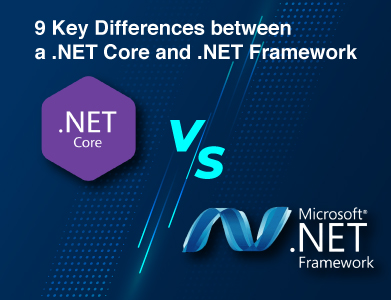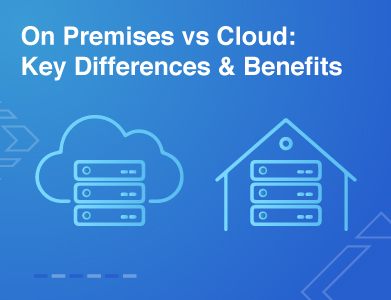Expertise
Conversational AI uses artificial intelligence to interact with customers through chat or voice, providing support, answering questions, and even helping with policy suggestions. For the insurance industry, this means that customers can get real-time responses whenever they need assistance.
In insurance, conversational AI tools include:
- Chatbots that answer inquiries instantly
- Virtual agents that assist with claims processing
- Voice assistants for quick, hands-free help
- Intelligent IVR systems for handling calls efficiently
Benefits of Conversational AI in Insurance

Why Conversational AI is Transformative for Insurance Providers
Adopting conversational AI isn’t just about saving time—it’s about offering a seamless, modern experience. Here are some of the key benefits:
- 24/7 Customer Availability Conversational AI provides uninterrupted service, ensuring customers have access to help at any time, day or night.
- Reduced Operational Costs By automating repetitive tasks, companies can manage high volumes without expanding their support teams.
- Enhanced Customer Engagement Fast, accurate responses create a better experience, keeping customers engaged and loyal.
- Valuable Insights By analyzing interaction data, insurers gain insight into customer needs and can improve offerings based on real data.
- Scalability for Growth Conversational AI can handle a growing number of inquiries, supporting business growth without the need for proportional staffing increases.
Practical Use Cases of Conversational AI in Insurance
The insurance industry is complex and highly regulated and providing seamless experiences for customers often requires modern digital tools. Conversational AI is becoming essential, offering insurers valuable ways to enhance service, improve internal processes, and create a more efficient customer journey. Here are eight practical ways conversational AI is reshaping insurance:
1. Automating Repetitive Inquiries
- Insurance clients frequently ask similar questions about policies, coverage, and claims. Conversational AI automates these common queries, delivering fast and accurate answers around the clock. This automation lightens the load on customer service teams and improves response times, creating a positive experience for clients.
- Example A policyholder might ask, “What does my premium cover?” Conversational AI can instantly respond with details about the policy, allowing human agents to focus on more involved cases. This reduces the call center workload and helps ensure customers get the answers they need without delay.
2. Providing On-Demand Knowledge for Agents
- Keeping up with changing policy details and regulations can be challenging for insurance agents. Conversational AI provides quick access to the latest information, helping agents stay informed and confident in customer interactions.
- Example An agent unsure about the specifics of a new health insurance clause can request the AI assistant to get an immediate, detailed response, allowing them to confidently assist the customer without delay.
3. Self-Service for Policyholders
- Conversational AI allows customers to manage their insurance needs independently, from comparing policies to making basic policy adjustments. Self-service AI is particularly useful for straightforward products like travel or motor insurance, where customers can explore options and make decisions with minimal support.
- Example A customer looking to purchase travel insurance interacts with an AI assistant embedded in the insurer’s app. They can compare policies, check coverage details, and even finalize the purchase, all without needing to speak to an agent, making the process quick and convenient.
4. Improving Call Center Efficiency
- Insurance contact centers deal with large volumes of inquiries. Conversational AI optimizes these operations by managing routine questions and freeing agents to focus on more complex issues. This boosts productivity and reduces wait times for customers.
- Example An AI chatbot can handle frequent questions about policy coverage or payment options, while human agents focus on detailed cases. By handling these simpler interactions, conversational AI ensures customers with complex needs get timely human support.
5. Enhancing the Customer Journey with Personalized Experiences
- Conversational AI makes the customer journey smoother by providing personalized guidance, faster response times, and multi-channel support. It helps insurers deliver a consistent experience, whether customers are interacting via app, website, or phone.
- Example A policyholder browsing options for home insurance can interact with a virtual assistant to receive tailored recommendations based on their needs, guiding them through the selection and application process seamlessly.
6. Streamlining Internal Operations
- Beyond customer interactions, conversational AI supports backend operations such as claims processing and fraud detection. It speeds up data retrieval, improves accuracy, and alerts agents to potential issues, making internal processes more efficient.
- Example An employee handling claims processing can use the AI to quickly filter relevant data, reducing the time taken to review claims and minimizing wait times for customers. Additionally, AI’s fraud detection capabilities can flag suspicious patterns, enabling proactive intervention.
7. Accelerating the Purchase Process for New Customers
- For prospective policyholders, conversational AI simplifies product research and purchase. It helps customers explore policy options, receive personalized recommendations, and complete purchases seamlessly, especially for straightforward products.
- Example A potential customer browsing motor insurance options interacts with an AI assistant, which provides product suggestions, assists with document uploads, and guides them through payment, making the purchase process smooth and efficient.
8. Identifying Trends and Opportunities through Data Analysis
- Conversational AI tracks customer interactions, providing insurers with insights into patterns and emerging trends. Analyzing keywords in these conversations can reveal new opportunities and help insurers tailor marketing strategies.
- Example AI may notice an increase in questions about “home insurance discounts.” Using this data, the marketing team can launch a targeted campaign, capturing the interest of customers looking for savings.
Driving Sales in Insurance with Conversational AI
Conversational AI can play a direct role in improving sales, lead qualification, and customer satisfaction:
- Personalized Policy Suggestions AI-driven chatbots analyze customer profiles to recommend the most suitable insurance plans, enhancing the likelihood of conversion.
- Automated Lead Qualification Conversational AI interacts with potential customers on your website, qualifying leads by gathering key information, and passing high-intent leads to your sales team.
- Strategic Cross-Selling & Up-Selling AI analyzes a customer’s current policies and suggests additional coverage options based on their profile, maximizing revenue.
- Automated Follow-Ups Conversational AI can follow up on leads who show interest, increasing conversion rates with minimal human intervention.
Experience Exceptional Customer Service with Conversational AI Insurance
Customer service in insurance often involves complex questions and sensitive information. Here’s how conversational AI can improve this critical area:
- Streamlining Claims Processing Virtual agents guide customers through the claims process step-by-step, providing real-time support and status updates.
- Handling Common Queries Instantly AI-powered chatbots manage FAQs like coverage details, billing inquiries, and renewals, reducing wait times and increasing satisfaction.
- Empowering Customers with Self-Service Customers can update their information, check claim statuses, and handle renewals on their own, cutting down the need for direct agent support.
- Delivering Personalized Experiences By referencing past interactions, AI can tailor responses to each customer’s individual needs, ensuring relevant and consistent service.
Future Trends in Conversational AI for Insurance
- Multilingual Support for Global Reach AI systems will support multiple languages, allowing insurers to serve a broader audience.
- Advanced Sentiment Analysis AI will be better equipped to understand customer tone and emotion, allowing for more empathetic interactions.
- Human-AI Hybrid Models AI will handle simpler inquiries and seamlessly transfer more complex cases to human agents, ensuring efficient, high-quality support.
- Predictive AI for Proactive Service Future AI systems will analyze behavior patterns to anticipate customer needs, offering relevant solutions even before they reach out.
- Voice Assistance for Accessibility Voice-enabled AI will become more popular, allowing customers to interact hands-free, which is especially valuable for accessibility.
Conversational AI for Business Growth in Insurance
For insurance companies, conversational AI can lead to measurable business growth, from improving conversion rates to enhancing customer loyalty:
- Increased Conversion Rates AI identifies high-quality leads and passes them to sales teams, helping agents focus on promising prospects.
- Stronger Customer Retention Personalized, responsive support keeps customers satisfied, boosting loyalty and retention.
- Faster, Efficient Claims Processing By automating the more straightforward elements of claims, conversational AI ensures quicker resolutions, enhancing the overall customer experience.
- Data-Driven Insights for Strategic Decisions Conversational AI interactions provide rich data that insurers can use to adjust strategies, making them more customer-centric.
Conclusion
Conversational AI is transforming the insurance industry, making it easier to serve customers quickly and efficiently. By using AI-powered chatbots and virtual agents, insurance providers can answer questions instantly, help customers anytime, and speed up claims—all while reducing costs and improving satisfaction.
If you're ready to deliver better customer experiences and grow your business, conversational AI is the way forward. Reach out to us today to explore how our AI solutions can help your insurance company stand out and succeed!
01How secure is conversational AI?
Most platforms prioritize security, with strict protocols to protect sensitive customer information and comply with regulatory standards.
02How does conversational AI affect customer support teams?
By managing repetitive inquiries, AI allows human support teams to focus on more complex, value-added tasks, increasing overall efficiency.
03What is conversational AI, and how does it function?
It’s an AI system designed to communicate with customers through chat or voice, answering questions, guiding them through tasks, and offering real-time support.
04Can conversational AI handle complex insurance claims?
While it’s excellent for managing routine claims, complex cases may still require human oversight.










